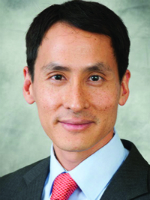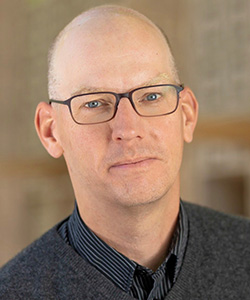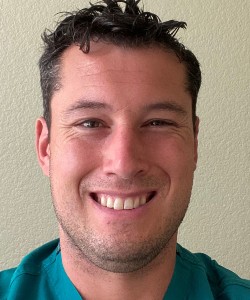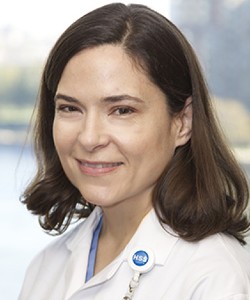Multimodal Anesthesia and Analgesia for Spine Surgery
Live Webinar
Registration is now closed.
CME Certificates Educational Webinars
Overview
Historically, opportunities for regional anesthesia and analgesia have been limited in patients undergoing spine surgery. More recently, opioid-minimizing approaches for spine care which emphasize comprehensive multimodal analgesia and regional techniques have been described in our literature and in clinical practice.
This ASRA-Webinar will comprise 3 focused talks on strategies for incorporating regional anesthesia, analgesia and opioid-sparing analgesia to the care of spine surgery patients. Recent relevant literature will be presented, but the emphasis will be on practical aspects of techniques and guidance for implementing new strategies into established practice. There will be ample time for discussion and questions.
Faculty
Scientific/Education Planning Committee
Ki Jinn Chin, MBBS, FANZCA, FRCPC; Toronto Western Hospital, Toronto, ON, Canada
Ellen M Soffin, MD, PhD; Hospital for Special Surgery, New York, NY
Faculty
Ki Jinn Chin, MBBS, FANZCA, FRCPC; Toronto Western Hospital, Toronto, ON, Canada
T Kyle Harrison, MD; VA Palo Alto Health Care System; Stanford Univ. School of Medicine, Palo Alto, CA
Joshua P Melvin, MD; Central
Anesthesia Service Exchange Sutter Medical Center, Sacramento CA
Ellen M Soffin, MD, PhD; Hospital for Special Surgery, Weill Cornell Medicine, New York, NY
Jeff L Xu, MD; Westchester Medical Center,
New York Medical College, Valhalla, NY
 Ki Jinn Chin, MBBS(Hons), FRCPC, is a professor in the department of anesthesiology & pain medicine at the Toronto Western Hospital, University of Toronto, Canada. He completed medical school
at the University of Newcastle-upon-Tyne, UK, and his anesthesiology training in Singapore. He has fellowship training in neuroanesthesia (University of Western Ontario) and regional anesthesia (Toronto Western Hospital). He has a deep interest
in anything to do with ultrasound-guided regional anesthesia, particularly where it improves patient care, comfort and outcomes.
Ki Jinn Chin, MBBS(Hons), FRCPC, is a professor in the department of anesthesiology & pain medicine at the Toronto Western Hospital, University of Toronto, Canada. He completed medical school
at the University of Newcastle-upon-Tyne, UK, and his anesthesiology training in Singapore. He has fellowship training in neuroanesthesia (University of Western Ontario) and regional anesthesia (Toronto Western Hospital). He has a deep interest
in anything to do with ultrasound-guided regional anesthesia, particularly where it improves patient care, comfort and outcomes.
 T Kyle Harrison, MD, is a clinical associate professor of anesthesiology, perioperative and pain medicine at Stanford University School of Medicine/VA Palo Alto Healthcare System in Palo Alto, CA. He graduated from Stanford
University School of Medicine in 1999 and completed both his anesthesiology training as well as a fellowship in medical simulation and crisis management at Stanford University in 2004. He joined the anesthesia staff at the VA Palo Alto in 2004.
His professional interests include cardiac anesthesia, regional anesthesia, and perioperative medicine. In addition to his clinical duties, he is also an associate program director for the anesthesia residency training program at Stanford University.
T Kyle Harrison, MD, is a clinical associate professor of anesthesiology, perioperative and pain medicine at Stanford University School of Medicine/VA Palo Alto Healthcare System in Palo Alto, CA. He graduated from Stanford
University School of Medicine in 1999 and completed both his anesthesiology training as well as a fellowship in medical simulation and crisis management at Stanford University in 2004. He joined the anesthesia staff at the VA Palo Alto in 2004.
His professional interests include cardiac anesthesia, regional anesthesia, and perioperative medicine. In addition to his clinical duties, he is also an associate program director for the anesthesia residency training program at Stanford University.
 Joshua P Melvin, MD, is a physician anesthesiologist and acute pain medical director at Sutter Medical Center in Sacramento,
CA. He attended medical school at UC Davis and completed his residency training at Stanford University. He is passionate about incorporating regional anesthesia into spine surgery, and optimizing postoperative recovery for these patients.
Joshua P Melvin, MD, is a physician anesthesiologist and acute pain medical director at Sutter Medical Center in Sacramento,
CA. He attended medical school at UC Davis and completed his residency training at Stanford University. He is passionate about incorporating regional anesthesia into spine surgery, and optimizing postoperative recovery for these patients.
 Ellen M Soffin, MD, PhD, is an assistant attending anesthesiologist at Hospital for Special Surgery in New York, NY.
She is the chair of the anesthesia spine service workgroup and directs the department’s spine research program. Dr. Soffin’s clinical interests include anesthesia for complex spine surgery, and emphasizing applications of regional
analgesia to the spine surgery patient. She is a nationally recognized expert on enhanced recovery pathways for spine surgery and has published extensively on opioid-minimizing strategies for orthopedic surgery.
Ellen M Soffin, MD, PhD, is an assistant attending anesthesiologist at Hospital for Special Surgery in New York, NY.
She is the chair of the anesthesia spine service workgroup and directs the department’s spine research program. Dr. Soffin’s clinical interests include anesthesia for complex spine surgery, and emphasizing applications of regional
analgesia to the spine surgery patient. She is a nationally recognized expert on enhanced recovery pathways for spine surgery and has published extensively on opioid-minimizing strategies for orthopedic surgery.
 Jeff L Xu, MD, is a clinical associate professor of anesthesiology; chief of the division of Regional Anesthesia & Acute
Pain Management, and program director of Regional Anesthesiology & Acute Pain Medicine Fellowship at Westchester Medical Center/New York Medical College (WMC/NYMC) in Valhalla, NY. Dr. Xu initiated the Regional Anesthesia Service in 2015. He started
the Regional Anesthesiology and Acute Pain Medicine Fellowship Program and served as the program director in 2016. Dr. Xu has been pivotal in the education of anesthesia residents and fellows and the evolution of clinical policies at WMC.
Jeff L Xu, MD, is a clinical associate professor of anesthesiology; chief of the division of Regional Anesthesia & Acute
Pain Management, and program director of Regional Anesthesiology & Acute Pain Medicine Fellowship at Westchester Medical Center/New York Medical College (WMC/NYMC) in Valhalla, NY. Dr. Xu initiated the Regional Anesthesia Service in 2015. He started
the Regional Anesthesiology and Acute Pain Medicine Fellowship Program and served as the program director in 2016. Dr. Xu has been pivotal in the education of anesthesia residents and fellows and the evolution of clinical policies at WMC.
CME-CPD
Educational Objectives
After participating in this educational activity, participants should be able to:
Introduce intraoperative non-opioid-based analgesic strategies for patients undergoing spine surgery.
Consider the merits of regional vs. general anesthesia for spine surgery.
Review novel candidate peripheral / truncal blocks and their suitability for spine surgery.
Demonstrate practical aspects of block performance.
Facilitate acquisition of tactile and ultrasonographic skills to optimize effective and safe placement of erector spinae plane catheters and single shot blocks.
Target audience
This webinar is designed for the physician learner wanting to gain knowledge in three strategies for incorporating regional anesthesia, analgesia and opioid-sparing analgesia to the care of spine surgery patients.
Accreditation and credit designation statements
Credits by Day | Maximum |
October 20, 2020 | 1.25 |
Total Credits: | 1.25 |
Physicians
The American Society of Regional Anesthesia and Pain Medicine is accredited by the Accreditation Council for Continuing Medical Education (ACCME) to provide continuing medical education for physicians.
The American Society of Regional Anesthesia and Pain Medicine designates this internet activity enduring material for a maximum of 1.25 AMA PRA Category 1 Credits™. Physicians should claim only the credit commensurate with the extent of their participation in the activity.
PAs (Physicians Assistants): AAPA accepts certificates of participation for educational activities certified for AMA PRA Category 1 Credit™ from organizations accredited by ACCME or a recognized state medical society. Physician assistants may receive a maximum of 1.25 hours of Category 1 credit for completing this program.
Nurse Practitioners: The American Association of Nurse Practitioners (AANP) accepts AMA PRA Category 1 Credits™ from organizations accredited by the ACCME. This activity has been approved for a maximum of 1.25 AMA PRA Category 1 Credits.TM
Registered Nurses: Regulations dictate that only physicians may earn CME credits, however, many state Boards of Registered Nursing accept AMA PRA Category 1 Credits™ from organizations accredited by the ACCME. Attendees are responsible for confirming their specific board’s acceptance of ASRA-provided credits. This activity has been approved for a maximum of 1.25 AMA PRA Category 1 Credits.TM
The American Board of Anesthesiology® MOCA®1
This activity contributes to the CME requirements for Part II: Lifelong Learning and Self-Assessment of the American Board of Anesthesiology’s (ABA) redesigned Maintenance of Certification in Anesthesiology Program® (MOCA®), known as MOCA 2.0.TM Please consult the ABA website, www.theABA.org, for a list of all MOCA 2.0 requirements. Maintenance of Certification in Anesthesiology Program® and MOCA® are registered certification marks of The American Board of Anesthesiology.®
ASRA is an ABA-approved provider and, as a service to ASRA members and participants, CME credits are reported to the ABA. Participants must include their correctly formatted ABA ID number (34567890) during the online evaluation and credit claim process available at the conclusion of the activity. Once the online evaluation and credit claim process is closed, certificates will be issued and credits reported to the ABA. After this time, participants may request their CME certificate by contacting asrameetings@asra.com, but ASRA will no longer report credits to the ABA, which will then be the individual participant’s responsibility.
International credits
Royal College of Physicians and Surgeons of Canada: The Royal College of Physicians and Surgeons of Canada has agreements based on the mutual recognition of credit points with the American Medical Association for live and web-based (synchronous or asynchronous) educational events. You may submit your CME certificate directly for credit recognition of this accredited group learning activity (Section 1) as defined by the Maintenance of Certification program of The Royal College of Physicians and Surgeons of Canada. For more information, visit: www.royalcollege.ca
European Accreditation Council for Continuing Medical Education (UEMS-EACCME): The UEMS-EACCME has agreements based on the mutual recognition of credit points with the American Medical Association for live and e-learning educational events. Each medical specialist should claim only those hours of credit that he/she actually spent in the educational activity. The EACCME is an institution of the European Union of Medical Specialists (UEMS): www.uems.net
Commercial support disclosure
No industry support has been received for this educational activity.
Disclosure and resolution of personal conflicts of interest
Click here to view all faculty disclosures. In accordance with the ACCME’s Standards for Commercial Support and related policies, ASRA is committed to ensuring balance, independence, objectivity, and scientific rigor in its CME/CPD activities. Those in control of the educational content disclose all relevant relationships (financial or other) with any commercial interest that they or their spouse/partner have had within the past 12 months. If an individual refuses to disclose, they are disqualified from participating. Disclosure information is evaluated and conflicts of interest resolved. Disclosure is made to participants prior to the activity. Participants are asked to evaluate the objectivity and independence. Off-label or investigational use of a therapeutic product is also disclosed.
1 Maintenance of Certification in Anesthesiology™ program and MOCA® are registered trademarks of The American Board of AnesthesiologyTM